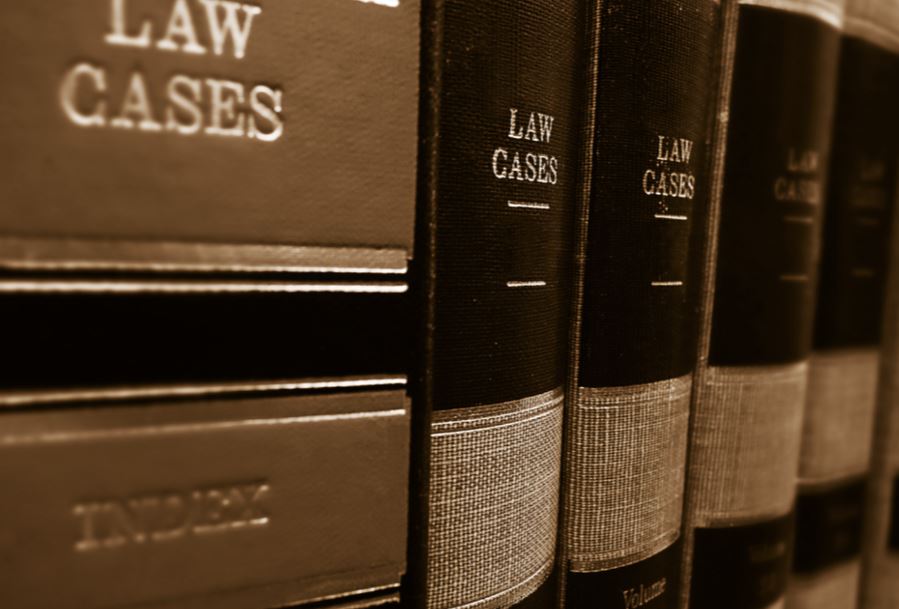This is a student blog written by Gurkiran Sandhu.
Alidair Ltd v Taylor [1978] ICR 445
Alidair Ltd v Taylor concerned whether the dismissal of an employee was fair when he had only made a single mistake during the course of his employment.
Facts of the case
Mr Taylor, who was a pilot, landed an aeroplane so badly that he damaged it. None of the passengers or crew on board were hurt but the damage to the aeroplane, owned by Alidair Ltd (the employer), was significant. Following the incident, Alidair Ltd suspended Mr Taylor. They held an inquiry which found that it was Mr Taylor’s fault for the poor landing because of his lack of flying knowledge. Alidair Ltd dismissed Mr Taylor with three months’ salary.
Mr Taylor brought a claim for unfair dismissal. He claimed that the bad plane landing was the first mistake he had made in the course of his employment so it was unfair of Alidair Ltd to dismiss him.
The Industrial Tribunal’s decision
The Industrial Tribunal (as the Employment Tribunal was known at the time) allowed Mr Taylor’s complaint. They held that he was unfairly dismissed and should be awarded compensation though it was to be reduced by 25% as the tribunal acknowledged that he was at fault for the terrible landing and therefore contributed to his dismissal.
The tribunal recognised that Mr Taylor had been dismissed for an acceptable reason: lack of capability due to his lack of flying knowledge, but held that Alidair Ltd had not acted reasonably through the inquiry. They found that the inquiry’s proceedings were not independent or properly conducted as Mr Taylor had not been given a fair chance to explain himself. The members of the board of inquiry included an independent chairman and three employees of Alidair Ltd.
Alidair Ltd appealed to the Employment Appeal Tribunal.
The Employment Appeal Tribunal’s (EAT) decision
The EAT held that Mr Taylor had been fairly dismissed.
The EAT found that the inquiry was properly conducted by Alidair Ltd and that “it should not have been considered a professional body holding disciplinary proceedings but as a fact-finding inquiry”. Additionally, the EAT agreed with Alidair Ltd’s argument that the inquiry’s conduct was not “contrary to natural justice” as they decided that, as a fact-finding inquiry, the inquiry could be made up of members from the company and therefore it’s conduct was “in accordance with natural justice”. Natural justice means that a party has a right to a fair hearing which is unbiased.
In addition, the EAT gave examples of certain jobs – such as a nuclear scientist, a train driver, a lorry driver carrying hazardous goods and, (as was relevant here) a pilot – where making a single mistake which could lead to serious consequences would justify dismissal.
Mr Taylor appealed to the Court of Appeal.
The Court of Appeal’s decision
The Court of Appeal (CA) affirmed the EAT’s decision and found that Mr Taylor had been fairly dismissed by Alidair Ltd.
The requirements of unfair dismissal that the CA referred to were, at that time, found in Schedule 1 of the Trade Union and Labour Relations Act 1974, in particular, paragraph 6(1) which outlined that “in determining… whether the dismissal of an employee was fair or unfair, it shall be for the employer to show (a) … the reason (or, if there was more than one, the principal reason) for the dismissal”. In this case, para 6(8) of Schedule 1 was also key, as this required that the employer has to satisfy the tribunal that, in the circumstances, he acted reasonably in treating the reason for dismissal as a sufficient reason for dismissing the employee.
Reasons for dismissal can be related to four different areas including the “capability or qualifications of the employee for performing work of the kind which he was employed by the employer to do” (para 6(2)(a) of Schedule 1 of the 1974 Act), with capability defined as meaning “capability assessed by reference to skill, aptitude, health or any other physical or mental quality” (para 6(9)(a)).
The CA held that the reason for dismissal given by Alidair Ltd (that Mr Taylor lacked capability in the way that he handled the aeroplane’s landing) was acceptable under para 6(1) and para 6(2)(a) as it related to Mr Taylor’s capability as he did not have the right skill needed. Also, the court held that Alidair Ltd had acted reasonably as required under para 6(8), finding that the Industrial Tribunal had acted in error. The CA highlighted a passage in the tribunal’s judgment where it had expressed the opinion that Mr Taylor would have been fairly dismissed if his employer’s inquiry had been “full”, “truly independent, and […] properly and fairly conducted.” The CA said that the statement “… [showed] how their decision arose. It was because they thought the inquiry was at fault: whereas the real question was whether the employers were at fault — whether they acted reasonably.”
Furthermore, Lord Denning stated “When a man is dismissed for incapacity or incompetence it is sufficient that the employer honestly believes on reasonable grounds that the man is incapable or incompetent. It is not necessary for the employer to prove that he is in fact incapable or incompetent”. This means it is easier on employers, in particular cases, compared to an employee as they do not have to prove incapability and their burden of proof is lower.
In addition, the CA held per curiam (a decision made by the court as a whole) that “In activities where departure from a high standard of professional skill may be disastrous, one failure in performance may justify dismissal”, agreeing with the EAT. In this case, Mr Taylor’s departure from a high standard of flying may have had disastrous consequences, as the passengers and crew on board the flight could have been seriously injured or worse. As such, even though Mr Taylor was a qualified pilot who had only made one mistake, the grounds for his dismissal were held to be reasonable.
Summary
To summarise, in certain situations, the dismissal of an employee can be fair even if the employee has only made a single mistake, as it is important that employers prioritise safety and do not put people in circumstances where their lives may be at risk. Alidair Ltd v Taylor is significant as it highlights that there are certain circumstances in certain jobs (such as a pilot) where it is reasonable for an employer to dismiss an employee for making one mistake, even if that employee had a near-impeccable record, because of the potential for horrendous consequences arising from the mistake.
This case remains good law but it is important to note that the Trade Union and Labour Relations Act 1974 was repealed and the main provisions covering unfair dismissal are now under section 98 of the Employment Rights Act 1996.
Further Reading
From one of the UK’s most read legal blogs.








